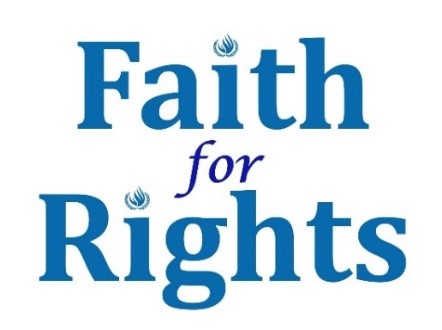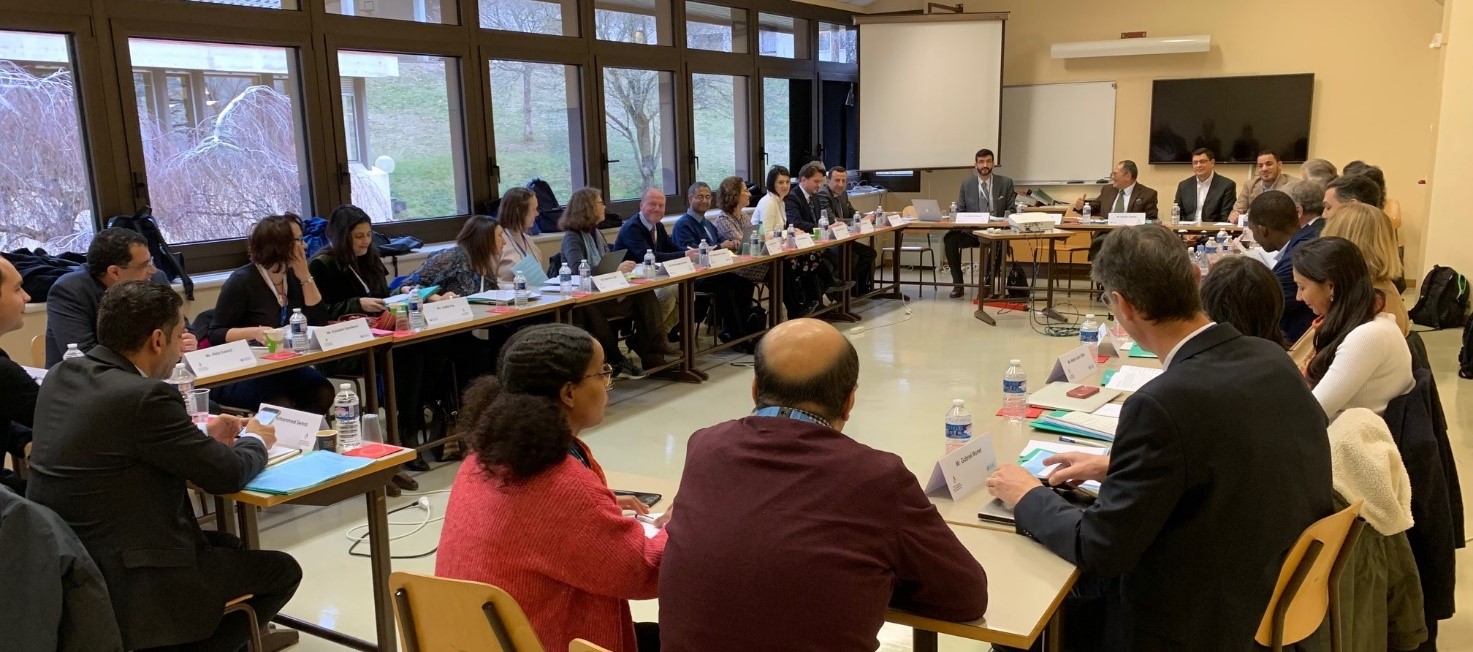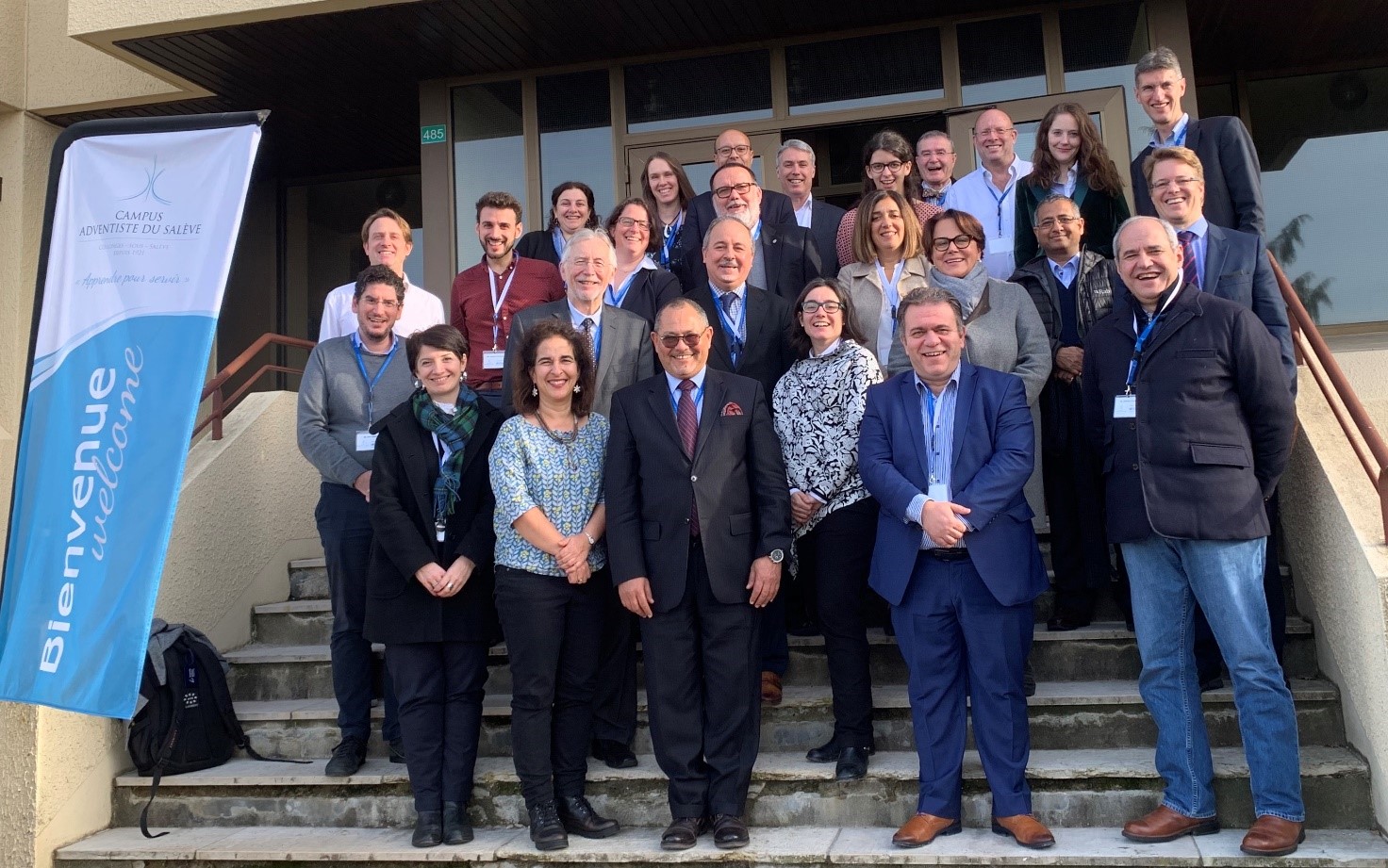The Collonges Declaration
#Faith4Rights toolkit
19 December 2019
 The "Faith for Rights" framework facilitates exploring the relationship between religions, beliefs and human rights.
The "Faith for Rights" framework facilitates exploring the relationship between religions, beliefs and human rights.
As stressed in the Rabat Plan of Action of 2012, religious leaders have a crucial role to play in speaking out firmly and promptly against hate speech. In 2017, the Beirut Declaration on "Faith for Rights"added that individual and communal expression of religions or beliefs flourish in environments where human rights, based on the equal worth of all individuals, are protected. Similarly, human rights can benefit from deeply rooted ethical and spiritual foundations provided by religions and beliefs. The Beirut Declaration and its 18 commitments reach out to theistic, non-theistic, atheistic or other believers in all regions of the world to enhance cohesive, peaceful and respectful societies on the basis of a common action-oriented platform.
The United Nations High Commissioner for Human Rights, Michelle Bachelet, has emphasized the importance of focussing attention on practical outreach tools, capacity-building programmes and interdisciplinary research on questions related to faith and rights. In this context, her office organized in 2018 and 2019 two workshops in Collonges-sous-Salève with faith-based and civil society actors,
Special Rapporteurs and members of United Nations human rights treaty bodies.
The "Collaboration of Collonges" is the follow-up to the normative trajectory of the soft law standards emerging from the Rabat Plan of Action and the Beirut Declaration on "Faith for Rights". It also contributes to implementing related intergovernmental resolutions and action plans, such as the United Nations Human Rights Council's resolution 16/18 on combating intolerance (2011), the Sustainable Development Goals (2015), the Plan of Action to Prevent Violent Extremism (2016), the UN Strategy and Plan of Action on Hate Speech (2019) and the UN Plan of Action to Safeguard Religious Sites (2019).
The expert workshops in Collonges build upon the experience gained from capacity-building and collaborative events organized by the Office of the High Commissioner for Human Rights (OHCHR), including in Dakar, Rabat, Geneva, Tunis, Marrakesh and Djibouti. They aim at filling the identified triple gap of education, research and training on faith and human rights, through the #Faith4Rights toolkit that is attached to this Collonges Declaration.
The participants at the workshop on the campus of Salève on 18-19 December 2019, including the
Special Rapporteur on freedom of religion or beliefand the Special Rapporteur on minority issues as well as several members of UN treaty bodies, have refined this #Faith4Rights toolkit. It is a prototype suggested for faith actors, academic institutions and training experts, to be further enriched and adapted to the various inter-faith engagement contexts. This methodology of engagement on faith and rights is designed to be appropriated by faith actors. The toolkit may also be implemented through information technology and social media, with a particular focus on the needs of youth. It is freely available online at www.ohchr.org/EN/Issues/FreedomReligion/Pages/FaithForRights.aspx
This #Faith4Rights toolkit contains 18 modules, mirroring each of the commitments on "Faith for Rights". These modules offer concrete ideas for peer-to-peer learning exercises, for example how to unpack the 18 commitments, share personal stories, search for additional faith quotes or provide for inspiring examples of artistic expressions. The annex proposes several cases to debate, which expand the thematic scope, illustrate the intersectionality of the 18 commitments and enhance the skills of faith actors to manage real life situations towards the shared aims of "Faith for Rights".
The whole concept is interactive, result-oriented and conducive to critical thinking. It is open for adaptation by facilitators in order to tailor the modules to the specific context of the participants. This is the first edition of the #Faith4Rights toolkit, which will be regularly updated.

Participants at the OHCHR expert workshop in Collonges, 13-14 December 2018

Participants at the OHCHR expert workshop in Collonges, 18-19 December 2019
Religious and other quotes as well as artistic expressions contained in this #Faith4Rights toolkit emanate from the expert workshops in Beirut and Collonges. The views expressed in this toolkit do not necessarily constitute positions of OHCHR or any other UN entity whose reports are quoted in this toolkit.
This #Faith4Rights toolkit is licensed under a Creative Commons Attribution 4.0 International License.
1st edition for piloting (January 2020)
